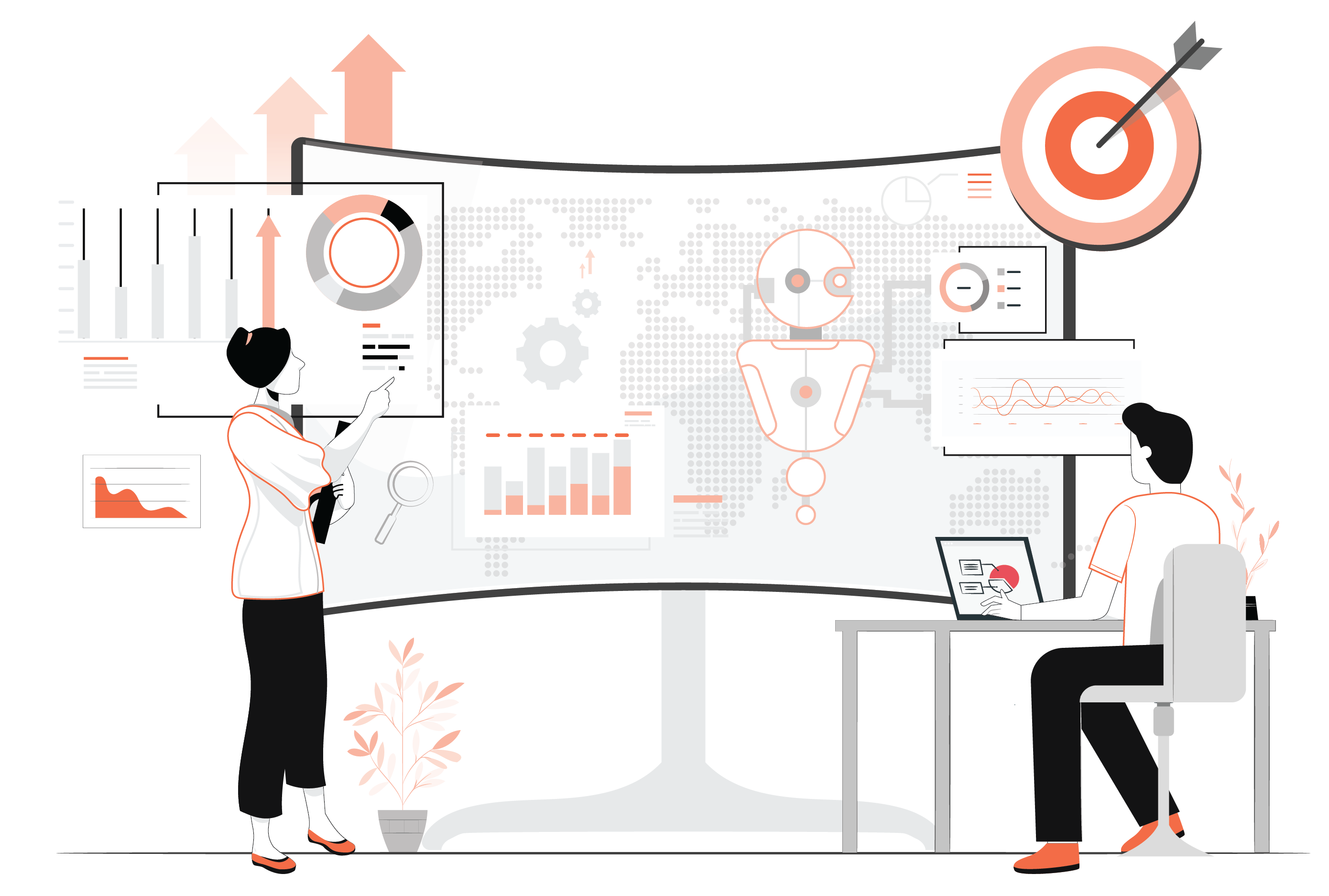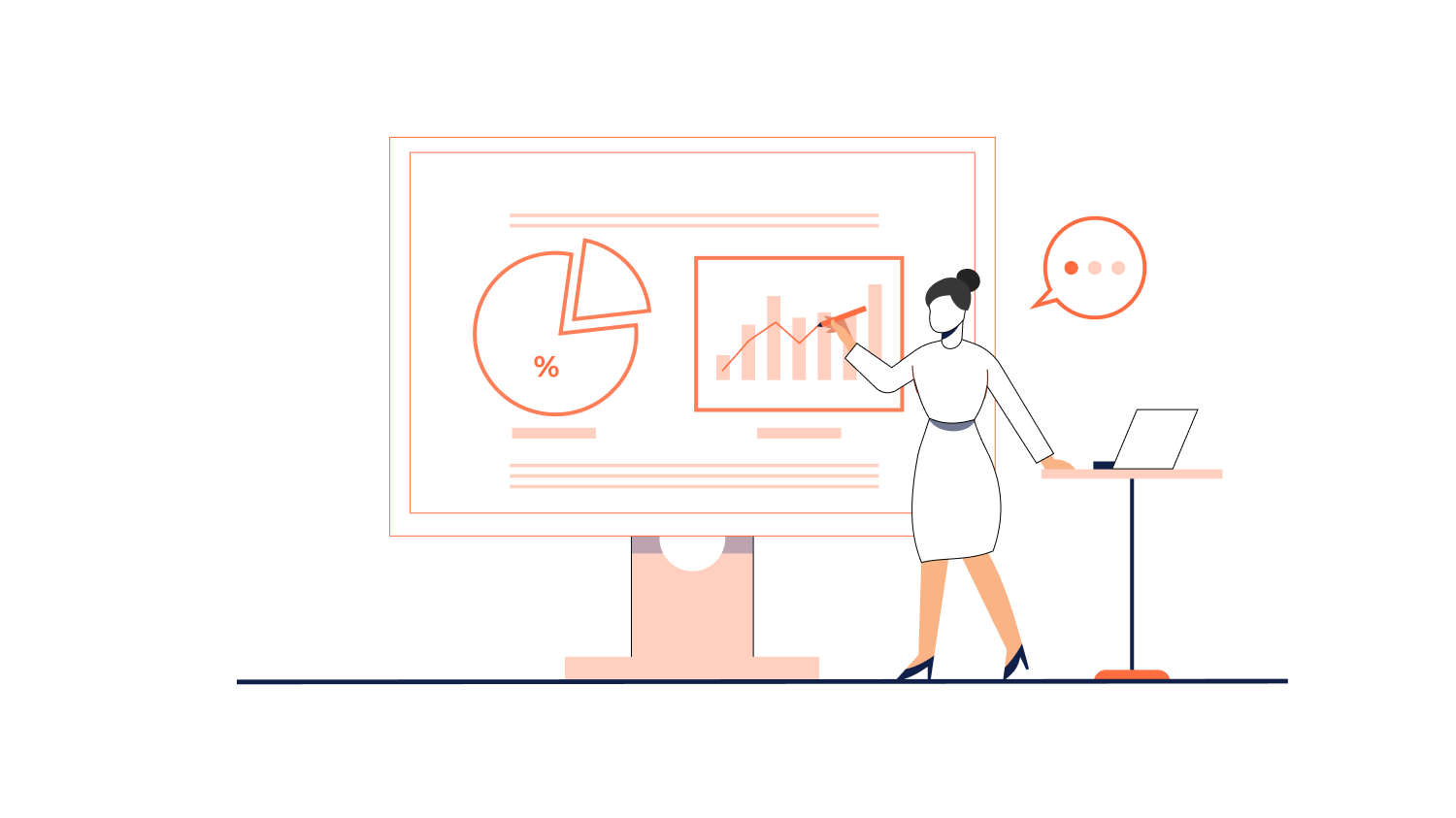Successful businesses worldwide use data to their advantage.
Turning raw data into actionable insights allows them to make intelligent decisions, identify problems, and boost their growth.
For building a successful business, it’s quintessential to use data effectively.
The future is going to be shaped by how companies use their data.
The data generated by the users of their products and services are the key to upgrading.
As of today, two powerful tools that the industry has to utilize these data are:
- Business Intelligence
- Business Analytics
Are you thinking about how these tools make a difference?
Well, this blog will put your curiosity to rest.
What is Business Intelligence?
Business Intelligence helps businesses understand the data they generate to build operations. It answers questions and solves problems using historical and current data. Business decision-makers use it to extract useful information from their data.
Let’s take the example of Netflix:
There are many ways in which it uses its users’ data. One of those is that it analyzes vast amounts of information and uses various methods to conclude by offering suggestions to users based on previously viewed programs. It helps them keep their users active on the platform and engaging with the content.
Business Intelligence (BI) involves an extensive process of converting raw data into information that can be useful to a business in making decisions.
BI aims to help enterprises to find accessible and sustainable profits by analyzing different risks and parameters associated with the company.
Businesses can use this information to their advantage by making well-informed decisions to help them grow and succeed.
Applications of Business Intelligence
Here are some real-world examples of how Business Intelligence powers businesses worldwide:
- Twitter – The social media company uses BI and AI to fight inappropriate and potentially dangerous content on its platform. Twitter uses business intelligence tools to watch live video feeds and categorize them based on the subject. This data enhances search capabilities and helps algorithms identify videos users might be interested in viewing.
- Tesla – One of the top automobile manufacturers in the world, they use BI to connect their cars wirelessly to their corporate offices. By collecting data and analyzing it, they can better understand their customers and anticipate and correct problems.
- Walmart – The retail giant understands how online behavior influences online and in-store activity by using business intelligence (BI) simulations to analyze customer purchasing patterns. It helps Walmart optimize its staffing levels and better meet customer demands.
What is Business Analytics?
Business analytics analyzes data to help build future operations and improve current processes. It derives insights into the ongoing operations by monitoring data from the past to serve customer needs & priorities.
Business analytics aims to find actionable insights by studying patterns in data by following a statistical analysis to forecast future trends.
Applications of Business Intelligence
Here are some real-world examples of how Business Analytics innovates businesses worldwide:
- Uber – Uber developed COTA (customer obsession ticket assistant) in 2018 to help improve the accuracy and speed of customer support responses. Machine learning and natural language processing have helped customer support agents respond more quickly and accurately to customer tickets.
Also Read: The Actual Uber-like App Development Cost
- Microsoft – The tech giant used Business Analytics in 2015 to plan its engineering group’s office move. Their Workplace Analytics team hypothesized that moving the 1,200-person group from five buildings to four could improve collaboration. This move saved 100 hours of work per week and gained a net saving of 520,000.
- Starbucks – By the power of BI tools and through access to individual purchase data of millions of customers using their loyalty card program and mobile application, they predict purchases and customize offers of what customers are likely to buy.
Is Business Intelligence the same as Business Analytics?
Quite a tough fight, indeed!
Both these tools are vital for simplifying, processing, and analyzing data. You can make better decisions and achieve operational efficiencies with both of them.
Business intelligence and business analytics are two different but complementary ways of using data to improve business operations.
BI and BA: Key features and differences
- Business intelligence use available data to analyze past patterns and make processes more efficient in the present. On the other hand, business analytics analyzes past trends to make predictive analyses and forecasts for the future.
- Business intelligence has to deal with a lot of data; sometimes, that data should be more organized, thus posing a challenge for business intelligence because it needs that data to function correctly. On the other hand, business analytics has tools and skills that help them figure out what the information means and how to use it to drive the business.
- Business intelligence is essential for businesses that want to run and maintain their current state. In contrast, business analysis is more driven toward companies focused on future growth and sustainability.
Advantages: Business Intelligence vs. Business Analytics
| Business Intelligence | Business Analytics |
| Increases productivity | Improves decision-making |
| Enhances visibility through interactive platforms | Increases efficiency |
| Accessible and scalable | Reduces costs and increases revenue |
How do Business Intelligence and Business Analytics help your startup grow?
Business intelligence (BI) tools don’t require coding, and teams of all levels of technical expertise can use them. If you’re a startup looking to boost your business through improved data analysis and optimization, BI is the way to go.
If your business processes need to be changed and you need to make significant alterations to your startup wireframe, then business analytics (BA) is the best option. Business analytics makes data interpretation and mining easy, which will help you form new processes.
Similar to how BI & BA bring innovations in businesses, startups are the ones that are introducing disruptive innovations in today’s global scenario. If you have a startup idea, we have the ultimate solution to supercharge it for you.
Which is better, Business Intelligence or Business Analytics?
BI runs your business. BA changes your business.
The main distinction between business intelligence and business analysis is that the latter has the potential to revamp a company; predictive analytics can propel an organization to hitherto unseen levels of success.
The world will be increasingly dependent on technological advancements in the coming days. And what makes these innovative developments possible is the proper and efficient use of data.
To be said right, data is the backbone of technology.
Takeaway
Both Business Intelligence and Business Analytics are tools that have the mammoth potential to skyrocket businesses and startups. They can help startups track and analyze data on customer behavior, market trends, and competitor activity, providing valuable insights for product development.
If you’d like to convert your data-driven insights into a scalable product, contact our product development experts now.




